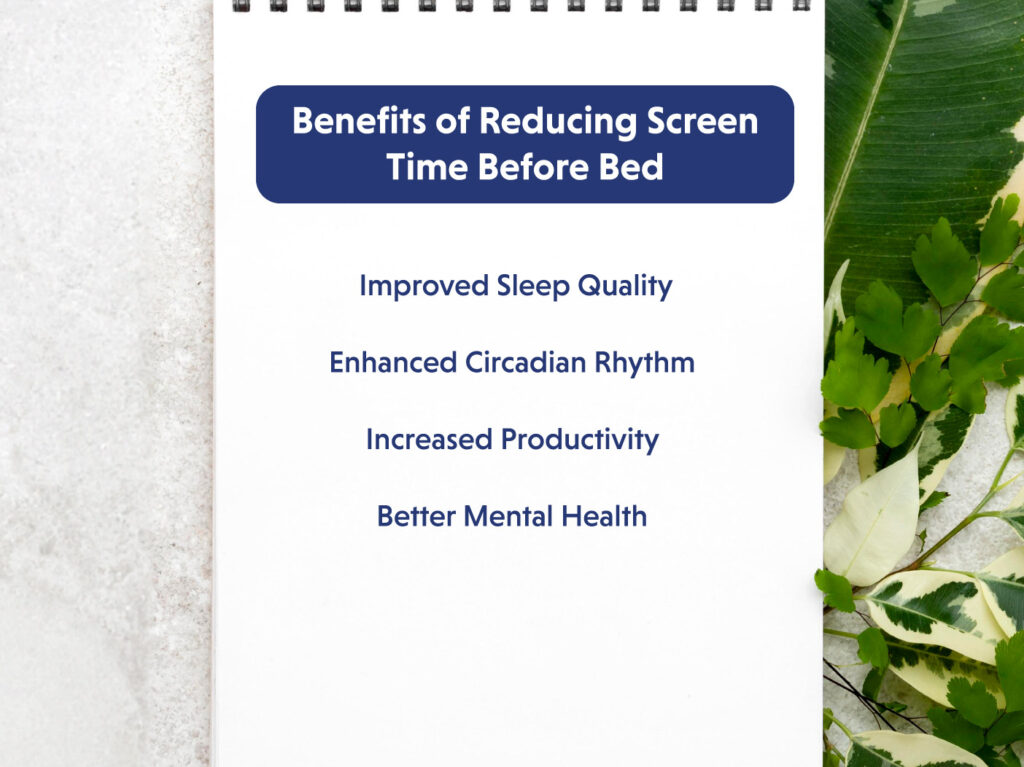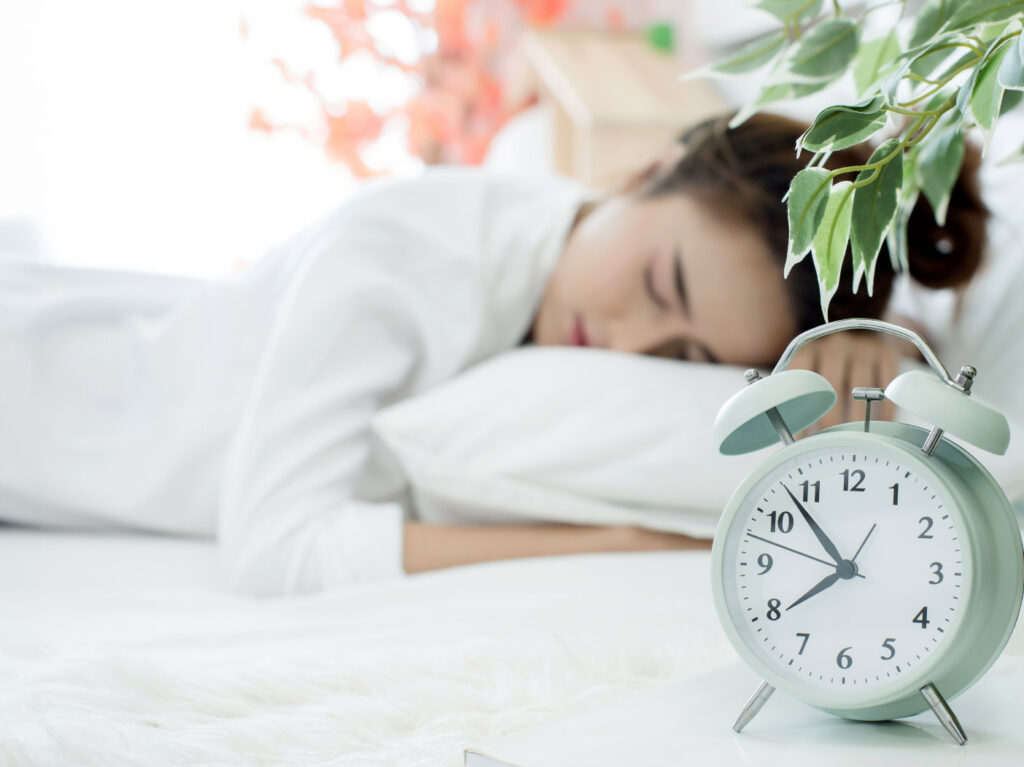In today’s digital age, it’s become increasingly difficult to separate ourselves from our smartphones and other electronic devices. Many of us find it challenging to resist the urge to scroll through social media or check our emails before bed. However, research has shown that excessive screen time before sleep can have a detrimental effect on our ability to fall asleep and the overall quality of our sleep. In this blog, we will explore the reasons why reducing screen time before bed is crucial for a good night’s sleep and provide practical tips to help you develop a healthier bedtime routine.
The Impact of Screen Time on Sleep
The blue light emitted by devices such as smartphones, tablets, and laptops can disrupt our innate sleep cycle. Exposure to blue light in the evening suppresses melatonin production, a hormone that regulates sleep. This can make it difficult to fall asleep and may result in a decreased duration of sleep.
Furthermore, engaging with stimulating content on our screens, such as social media or work-related emails, can keep our minds alert and make it challenging to relax and unwind before bed. The constant stream of information can also increase stress levels and contribute to anxiety, further hindering our ability to fall asleep.
Benefits of Reducing Screen Time Before Bed

Reducing screen time before bed can reap numerous benefits for your sleep and overall well-being. Here are some of the key advantages:
1. Improved Sleep Quality: By avoiding screen time before bed, you allow your body to naturally wind down and prepare for sleep. This can result in a deeper and more restful sleep, leaving you feeling refreshed and rejuvenated in the morning.
2. Enhanced Circadian Rhythm: Our bodies have an internal clock, known as the circadian rhythm, which regulates our sleep-wake cycle. Reducing screen time before bed helps to maintain a healthy circadian rhythm, promoting better sleep patterns.
3. Increased Productivity: By giving yourself a break from screens before bed, you allow your mind to relax and recharge. This can lead to increased productivity and focus during the day, as you start each morning well-rested.
4. Better Mental Health: Excessive screen time has been linked to increased feelings of anxiety and depression. By reducing your exposure to screens before bed, you can improve your mental well-being and promote a more positive mindset.
Effective Ways to Reduce Screen Time Before Bed
Now that we understand the importance of reducing screen time before bed, let’s explore some practical strategies to help you develop a healthier bedtime routine:
1. Set a reminder.

One of the first steps in reducing screen time before bed is to set a reminder to stop using your phone at least an hour before you plan to sleep. This will help you establish a consistent and structured routine. Instead of scrolling through social media, consider engaging in relaxing activities like reading a book, practicing meditation, or listening to an audiobook.
2. Create a phone-free zone.
To avoid the temptation of reaching for your phone before bed, establish a phone-free zone in your bedroom. Charge your phone in a location that is out of reach, preferably in a different room. This will eliminate the distractions of blinking lights or notifications, allowing you to create a calm and peaceful sleep environment.
3. Replace your phone alarm.
If you rely on your phone as an alarm clock, consider replacing it with a traditional alarm clock. Choose an alarm clock with a screen that goes off after a certain period and requires physical interaction to check the time. This will reduce distracting lights in your bedroom and promote better sleep.
4. Utilize the Do Not Disturb Settings.
Take advantage of the “Do Not Disturb” feature on your phone. By enabling this setting, you can avoid unnecessary notifications while still being reachable in case of emergencies. Most phones also have a feature that allows calls from specific contacts to break through the “Do Not Disturb” setting, ensuring you won’t miss important calls.
5. Enhance your sleep environment.
To further improve your sleep quality, consider using sleep aids such as an eye mask and earplugs. An eye mask can block out any lights from chargers, clocks, or outside sources, creating a dark and conducive environment for sleep. Earplugs can help drown out any distracting noises, particularly if you are a light sleeper.
Change your habits and set realistic goals
One effective approach to changing a habit is to establish attainable objectives for its modification. Instead of trying to completely eradicate smartphone usage after 7 p.m., it might be more feasible to initially focus on refraining from phone use during the 30 minutes prior to bedtime. Once this goal is achieved and consistently maintained, it can then be gradually expanded to encompass the hour before going to sleep, and so forth.
The purpose is to set realistic goals for yourself so you don’t give up due to frustration. Smaller achievements can generate momentum and aid in the attainment of your long-term objective. The objective is to establish attainable targets to avoid becoming disheartened and abandoning the task. By accomplishing smaller milestones, you can build up momentum that will propel you towards achieving your ultimate goal.
Conclusion
Reducing screen time before bed is essential for a good night’s sleep and overall well-being. By implementing these strategies and developing a healthier bedtime routine, you can improve your sleep quality, enhance your productivity, and have better mental health. Remember, a digital detox before bed can work wonders in helping you unwind and prepare for a restful night’s sleep. If you find that your sleep issues persist despite reducing screen time, it may be beneficial to consult a healthcare professional for further advice and guidance.



